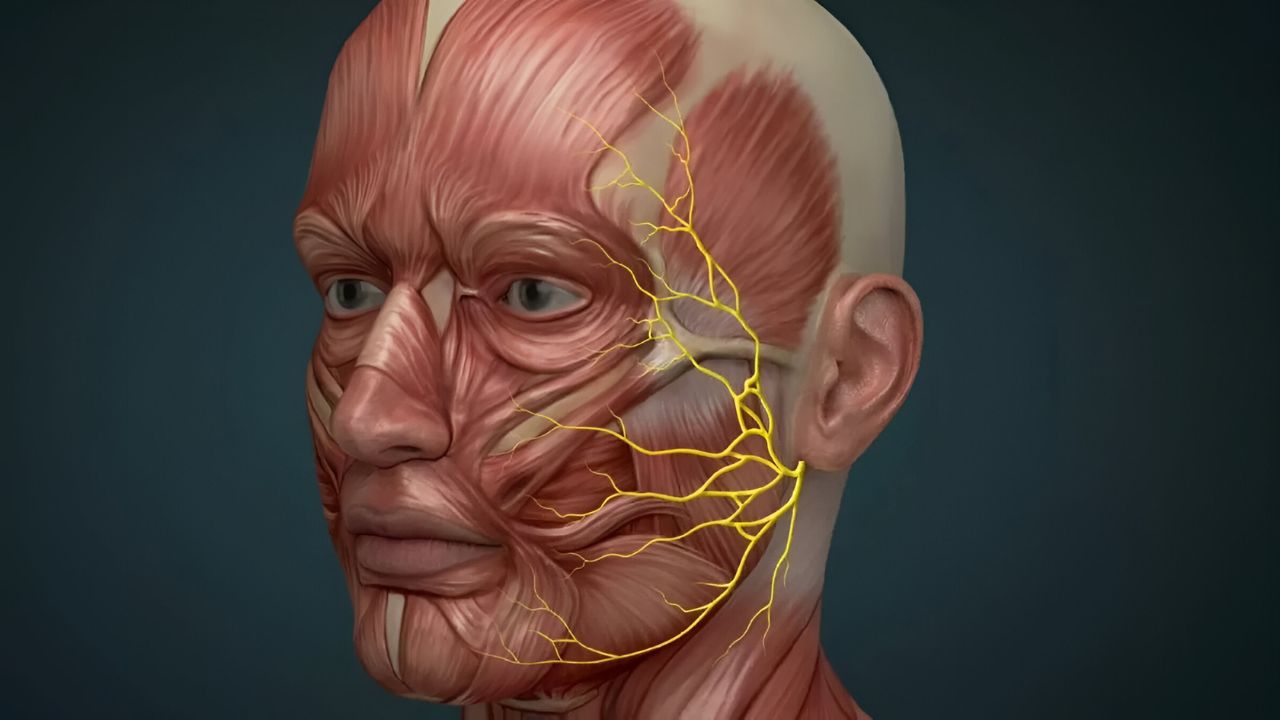
Ramsay Hunt Paralysis might sound like a rare condition, but it’s more common than you think. Named after neurologist James Ramsay Hunt, this disorder affects the facial nerves and can cause a range of symptoms from facial weakness to hearing loss. Caused by the varicella-zoster virus, the same virus responsible for chickenpox and shingles, it can strike anyone who has had these illnesses. Early diagnosis and treatment are crucial for recovery. Understanding Ramsay Hunt Paralysis can help you recognize symptoms and seek timely medical help. Here are 30 facts to shed light on this condition and its impact on daily life.
Key Takeaways:
- Ramsay Hunt Paralysis is a rare condition caused by the varicella-zoster virus, leading to facial paralysis and a painful rash. Early recognition and treatment can improve outcomes and quality of life.
- Treatment options include antiviral medications, corticosteroids, pain relievers, physical therapy, and eye care. Understanding risk factors and seeking early treatment can help manage the condition and improve prognosis.
What is Ramsay Hunt Paralysis?
Ramsay Hunt Paralysis, also known as Ramsay Hunt Syndrome, is a rare neurological disorder. It occurs when the varicella-zoster virus infects a nerve in the head. This condition can cause facial paralysis and a painful rash.
-
Named After: Ramsay Hunt Syndrome is named after James Ramsay Hunt, an American neurologist who first described the condition in 1907.
-
Virus Involved: The varicella-zoster virus, which causes chickenpox and shingles, is responsible for Ramsay Hunt Syndrome.
-
Facial Paralysis: One of the hallmark symptoms is facial paralysis on one side of the face.
-
Painful Rash: A painful, blistering rash often appears in or around the ear, mouth, or face.
-
Hearing Loss: Some patients experience hearing loss in the affected ear.
-
Tinnitus: Ringing in the ears, known as tinnitus, can also occur.
Symptoms and Diagnosis
Recognizing the symptoms early can lead to better outcomes. Diagnosis often involves a combination of physical exams and medical history.
-
Vertigo: Some individuals may experience vertigo, a sensation of spinning or dizziness.
-
Taste Loss: Loss of taste on the front two-thirds of the tongue is another symptom.
-
Dry Mouth and Eyes: Patients might suffer from dry mouth and eyes due to reduced saliva and tear production.
-
Weakness: General weakness or fatigue can accompany other symptoms.
-
MRI Scans: Magnetic Resonance Imaging (MRI) can help in diagnosing the condition by showing inflammation in the affected nerves.
-
Blood Tests: Blood tests can detect antibodies to the varicella-zoster virus, aiding in diagnosis.
Treatment Options
While there is no cure, treatments can help manage symptoms and improve quality of life.
-
Antiviral Medications: Antiviral drugs like acyclovir or valacyclovir can reduce the severity and duration of the virus.
-
Corticosteroids: Steroids like prednisone can help reduce inflammation and swelling.
-
Pain Relievers: Over-the-counter pain relievers or prescription medications can help manage pain.
-
Physical Therapy: Physical therapy can assist in regaining muscle strength and coordination in the face.
-
Eye Care: Protecting the eye on the affected side is crucial, as blinking may be impaired.
-
Moisturizing Eye Drops: Using eye drops can help keep the eye moist and prevent damage.
Risk Factors and Complications
Understanding the risk factors and potential complications can help in managing the condition better.
-
Age: Older adults are more likely to develop Ramsay Hunt Syndrome.
-
Weakened Immune System: Individuals with weakened immune systems are at higher risk.
-
Complications: If left untreated, complications can include permanent facial muscle weakness and hearing loss.
-
Postherpetic Neuralgia: Some patients may develop postherpetic neuralgia, a condition where pain persists long after the rash has healed.
-
Eye Damage: In severe cases, damage to the cornea can occur due to reduced blinking.
Prevention and Prognosis
While prevention can be challenging, understanding the prognosis can provide hope.
-
Vaccination: The chickenpox and shingles vaccines can reduce the risk of developing Ramsay Hunt Syndrome.
-
Early Treatment: Early treatment improves the chances of a full recovery.
-
Recovery Time: Recovery time varies; some people recover within a few weeks, while others may take months.
-
Long-term Effects: Some individuals may experience long-term effects, such as facial weakness or hearing loss.
-
Support Groups: Joining support groups can provide emotional support and practical advice.
-
Regular Check-ups: Regular medical check-ups can help monitor progress and manage symptoms.
-
Healthy Lifestyle: Maintaining a healthy lifestyle, including a balanced diet and regular exercise, can support overall well-being and recovery.
Ramsay Hunt Paralysis: Key Takeaways
Ramsay Hunt Paralysis, caused by the varicella-zoster virus, can lead to facial paralysis and hearing loss. Early diagnosis and treatment with antiviral medications and steroids can improve recovery chances. Symptoms like ear pain, rash, and facial weakness should prompt immediate medical attention. While anyone can get it, older adults and those with weakened immune systems are more at risk. Vaccination against chickenpox and shingles can reduce the likelihood of developing this condition. Understanding these facts helps in recognizing and managing Ramsay Hunt Paralysis effectively. If you or someone you know shows symptoms, seek medical advice promptly. Knowledge and quick action can make a significant difference in outcomes. Stay informed and proactive about your health.
Frequently Asked Questions
Was this page helpful?
Our commitment to delivering trustworthy and engaging content is at the heart of what we do. Each fact on our site is contributed by real users like you, bringing a wealth of diverse insights and information. To ensure the highest standards of accuracy and reliability, our dedicated editors meticulously review each submission. This process guarantees that the facts we share are not only fascinating but also credible. Trust in our commitment to quality and authenticity as you explore and learn with us.
